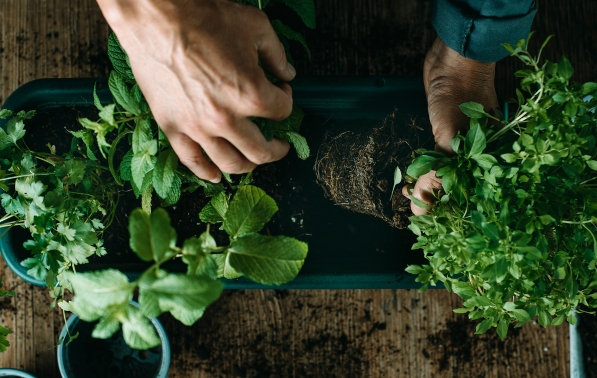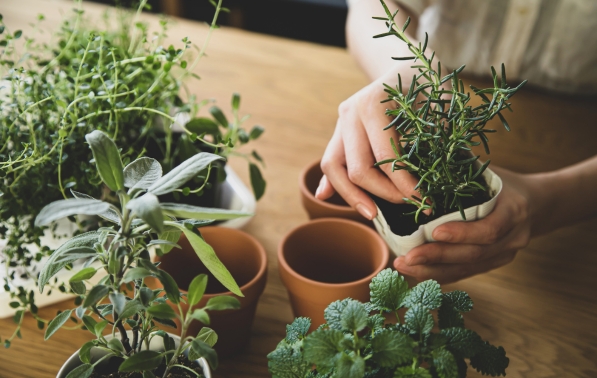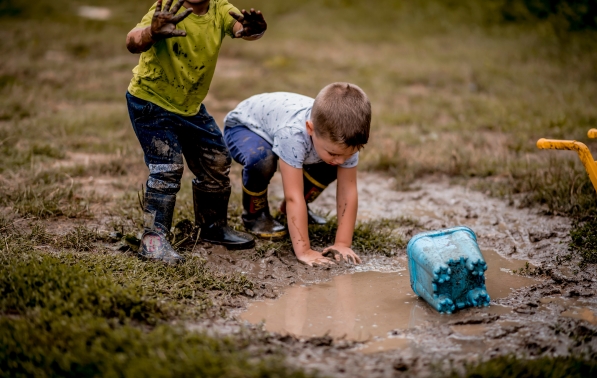Wellness Guide: Starting a Garden
August 02, 2024 | 0 comments
by Wendy Wilson
What you can grow successfully will depend on your location because the weather and soil are important factors.
Homesteaders of America surveyed 4,000 homesteaders and the results are interesting. More people are starting gardens and living closer to the land for various reasons. Last week we shared our favorite herbs for the garden and their uses, and now we are sharing resources and tips on starting your garden at home.
PREP
What you can grow successfully will depend on your location because the weather and soil are important factors. The type of growing season for your area will also dictate what you will have time to cultivate.
Consider the space and time you can dedicate to your garden area. Larger gardens will take more time to nurture. Cultivating a thriving garden is more than just watering daily and harvesting what you need. It’s always wise to start small and add on as you become more experienced in growing at home.
If you have never gardened before, pick up guides on what month to plant certain varieties of foods and herbs in your zone. Several educational channels on YouTube offer endless knowledge on gardening which are linked at the end of this guide.
STARTING SEEDS
When germinating seeds use several seeds as only a few will germinate out of the batch. You can germinate seeds by wetting a paper towel and spreading the seeds on the towel, folding it in half, and putting them in a zip-lock bag. Leave them on the counter for several days. Periodically check the seeds to see if any have germinated and if they have transfer them to peatmoss soil in a small container. When they are big enough, transfer them outside. Some homesteaders recommend hardening off plants before transplanting outdoors. Hardening off is the process of slowly exposing your indoor plants to the elements so they experience less stress when being transplanted.
Make sure you have ample space for the plants to grow. If keeping up with weeds is an issue, read the book Back to Eden for a weed-free garden without chemical sprays.
BUG CONTROL
Keeping bugs away is another challenge. There are some good organic pest control products but companion planting can repel garden pests just as well as herbicides. Some of those include:
- Mint (keep in a container as this plant is highly invasive)
- lemongrass
- marigolds
- catnip
- lavender
- Garlic
- onion
- citronella
Some organic pest control options include:
- Neem oil (do not apply in direct sunlight, best to apply in the evenings after watering)
- Mesh fabric to cover plants to keep bugs out
- Mesh jewelry bags can be used to protect fruits/vegetables
- Attract natural predators to your pests (ladybugs kill aphids)
To prevent slugs from eating your plants try trenching around the plants and putting in diatomaceous earth. This often stops slugs from crossing the trench and attacking the plant. Some might prefer a raised bed to deter bugs and weeds without using treatments. Crushed eggshells have also been known to deter slugs in the garden.
HOMEMADE PESTICIDES
The bugs can be a curveball most first-time gardeners didn’t plan for. The goal is to get ahead of the bugs before they become an infestation. One way to do that is to DIY your own pesticide spray with items that are already in your pantry or fridge.
Some sprays include dish soap and water, but we have found this recipe to be effective against aphids, June bugs, squash bugs, rabbits, and deer.
DIY Plant Spray:
- Puree 2-3 bulbs of garlic
- 1 tablespoon of cayenne pepper
- 1 chopped onion
- Add all ingredients to a large mason jar and top with water
- Let sit 24 hours
- Strain and add to a spray bottle
- Apply to plants as often as needed in the evenings after watering
HERB GARDEN MUST-HAVES
Most people start with growing culinary herbs such as rosemary, mint, thyme, etc. Outside of the culinary herbs, other beneficial herbal plants can be planted in the garden to attract pollinators and support the healthiest version of you. For those looking to expand their herbal garden, check out our blog post highlighting garden must-haves: https://www.thepowerherbs.com/blog/herb-profile-herb-garden-...
Most herbs are easy to grow and harvest. Many offer long-storage shelf life and can be dried, powdered, or tinctured. Interested in tincturing your herbs? Find out how with The Power Herbs book is now offered in a digital download for under $15. You will find The Power Herbs book here: https://www.thepowerherbs.com/herbs/Books-And-Newsletters.html
RESOURCES:
Youtube channels
https://www.youtube.com/watch?v=VTFLtfA4KEw
https://www.youtube.com/watch?v=QEOefKU3HQ0
To find out what growing zone you live in, check out the USDA Plant Hardiness Zone Map here: https://planthardiness.ars.usda.gov/
For a step-by-step guide for determining the best garden size for you, check out this guide: https://embracingharvest.com/garden-size-time-lifestyle/
Check out www.rareseeds.com for Baker Creek Heirloom seeds and www.groworganic.com for organic growing supplies.
Sources:
https://anoregoncottage.com/homemade-garlic-mint-garden-insect-spray-really-works/



